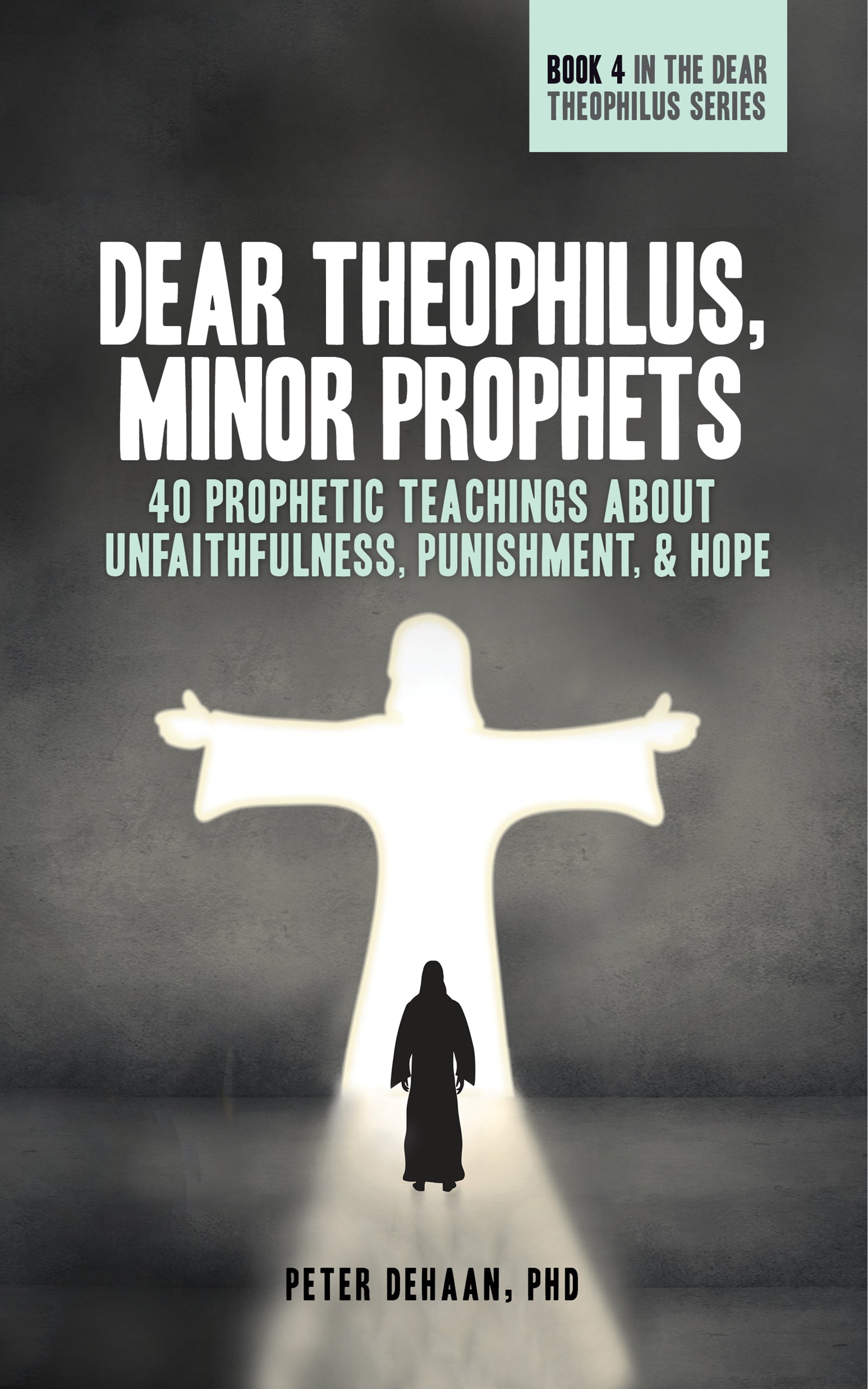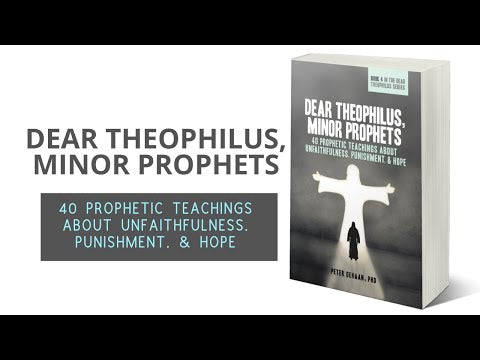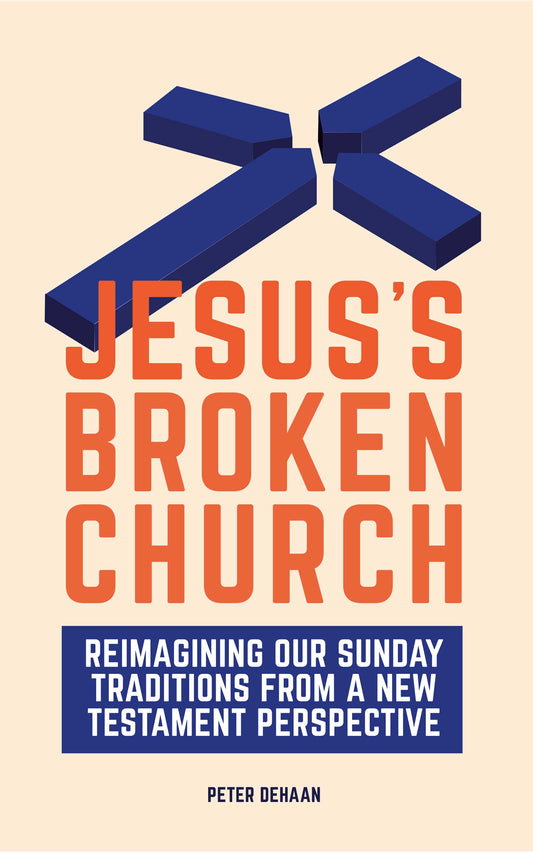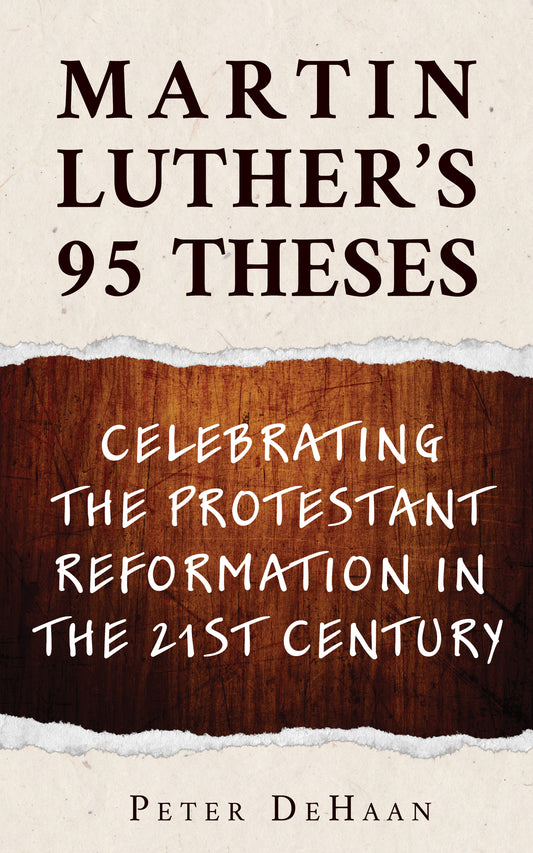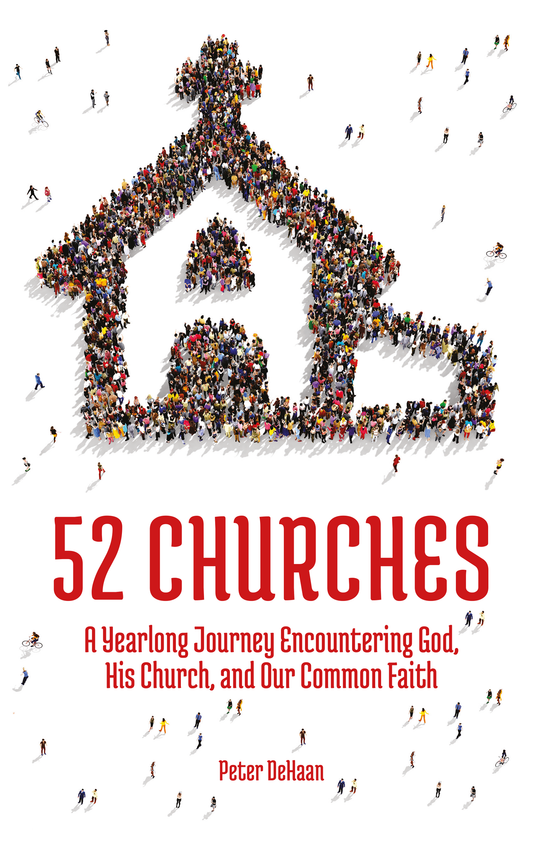Dear Theophilus, Minor Prophets: 40 Prophetic Teachings about Unfaithfulness, Punishment, and Hope (ebook)
Dear Theophilus, Minor Prophets: 40 Prophetic Teachings about Unfaithfulness, Punishment, and Hope (ebook)
Uncover hope, faithfulness, and forgiveness.
Couldn't load pickup availability
Are you ready to dive into the often overlooked and underestimated world of the Minor Prophets?
Don't let their label fool you. The messages they bring are just as vital and powerful as those of the Major Prophets. Perhaps even more so.
But if you’re like most people, you scarcely remember their names, let alone recall what they wrote. They are Jonah, Amos, Hosea, Micah, Nahum, Zephaniah, Habakkuk, Obadiah, Haggai, Zechariah, Joel, and Malachi.
Join Bible teacher Peter DeHaan in this 40-day Bible study that digs into the ministry, work, and writing of the Bible’s twelve Minor Prophets.
Dear Theophilus, Minor Prophets: 40 Prophetic Teachings about Unfaithfulness, Punishment, and Hope takes you on a journey through the Minor Prophets in chronological order, providing context and continuity to their messages.
From Jonah to Malachi, these quick and digestible books offer insights into the hearts and minds of prophets who served God faithfully in turbulent times. Join us as we explore their enduring teachings and learn how to truly follow, worship, and serve God.
This Bible study is perfect for both personal reflection and group study. Bonus sections enhance your understanding of key themes and passages from the Minor Prophets.
Are you ready for an exciting and enlightening adventure?
Get your copy of Dear Theophilus, Minor Prophets today!
[This book has been updated and republished as Minor Prophets Bible Study.]
---------------------------------------------
How it works. It’s as easy as 1-2-3:
- Complete your purchase here.
- You’ll receive an email from BookFunnel to download or access your book. (Click the “help” link in the email if you have questions.)
- Start reading right away on any device.
40-Day Bible Study Series, book 4 (but you can read in any order)
If you have questions about ordering, check out our FAQs.
View full details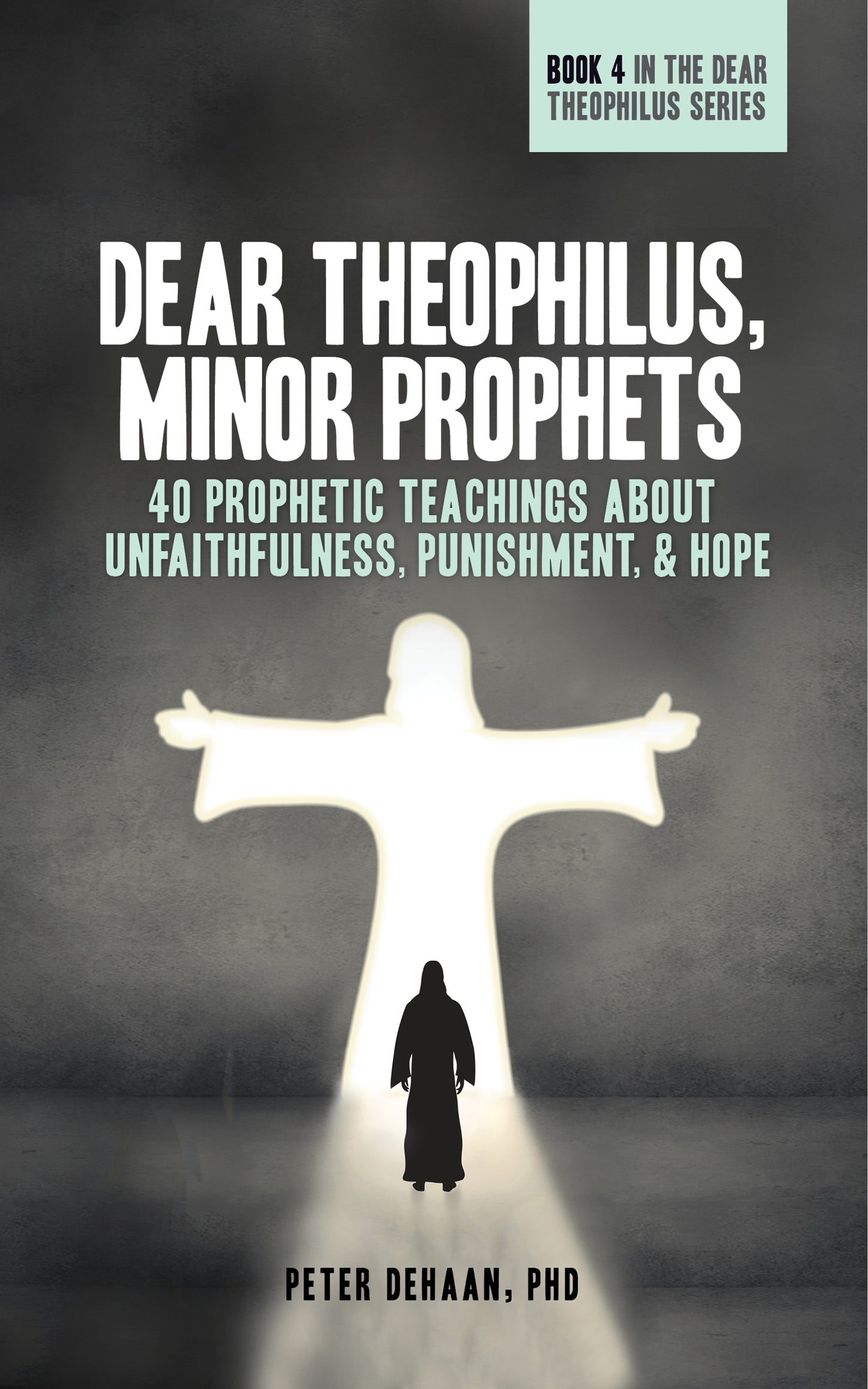
Would you like to read a sample?
Click here to read a sample
Who Are the Minor Prophets?
A large portion of the Old Testament contains books of prophecy. Bible scholars divide these prophetic books into two categories. They call one group the Major Prophets, which includes the writings of Isaiah, Jeremiah (who also wrote Lamentations), Ezekiel, and Daniel.
The other category is the Minor Prophets, which we’ll cover in this book. They are:
1. Hosea
2. Joel
3. Amos
4. Obadiah
5. Jonah
6. Micah
7. Nahum
8. Habakkuk
9. Zephaniah
10. Haggai
11. Zechariah
12. Malachi
This makes a total of twelve so-called Minor Prophets.
The label minor is unfortunate because it leads many people to believe that their works and messages aren’t as important as the Major Prophets. This isn’t true. They’re called minor because the books they wrote are shorter.
I, for one, like shorter books. It might be that you do too. The writings of these twelve prophets are quick to read and easier to digest.
We’ll cover all twelve in this book. However, we won’t address them in the order they appear in the Bible.
Instead, we’ll place them in chronological order (the best we can). This will give us some needed context and help us with continuity.
For many of these twelve prophets, the Bible lets us know the period of their ministries by mentioning the kings who ruled at that time, along with other useful hints. For other prophets, the Bible gives us no indication of when they prophesied. For these we place them in order based on Bible scholars’ interpretations of nonbiblical historical documents. Several of the prophets in the following list have overlapping timelines, being contemporaries of one another and prophesying in the same era.
Here are the twelve Minor Prophets placed in rough chronological order. Key events and other notable biblical figures appear in parentheses to help us round out the timeline.
The nations of Israel and Judah in the Promised Land.
• Jonah
• Amos
• Hosea
• Micah
• (Isaiah, major prophet)
Assyria conquers Israel and deports many people. Only Judah remains.
• Nahum
• Zephaniah
• (Jeremiah, major prophet)
• Habakkuk
• Obadiah
Babylon conquers Judah and deports many people.
• (Daniel, major prophet)
• (Ezekiel, major prophet)
King Cyrus of Persia allows the people exiled from Judah to return and rebuild Jerusalem and the temple.
• Haggai
• (Zerubbabel, governor of Judah)
• (Ezra, priest and teacher)
• Zechariah
• (Esther, made queen by King Xerxes of Persia and Media)
• (Nehemiah, governor of Judah)
• Joel
• Malachi
With this timeline in mind, let’s begin. It’s sure to be an exciting journey.
If others give us an unfair label, like the Minor Prophets, how can we rise above it to best serve God?
[Discover more about another label in Judges 6:15 and the outcome in Judges 8:28.]
* * *
Jonah
Of the twelve prophets we’ll cover, Jonah is the best known. He runs from God and spends a three-day time-out in the belly of a large fish. The Bible doesn’t call it a whale—though it could have been one. It’s simply a large fish.
Another notable fact about Jonah’s book is that it is mostly a historical narrative and contains only the briefest of prophecies. Of all the prophets, Jonah is the least interested in sharing his message and the most successful.
Here is an overview of Jonah:
Known As: Jonah son of Amittai
Location: Gath Hepher (in Israel)
Occupation: prophet
Addresses: the people of Nineveh
Old Testament Mentions: 2 Kings 14:25
New Testament Mentions: Matthew 12:39–41, Matthew 16:4, and Luke 11:29–32
New Testament Quotations: none
Homonymous Mentions: One other man named Jonah is in Matthew 16:17.
* * *
Day 1: Jonah’s Confession
Jonah 1–2
He answered, “I am a Hebrew and I worship the Lord, the God of heaven, who made the sea and the dry land.”
Jonah 1:9
The story of Jonah is familiar to many people. God tells Jonah to go to Nineveh and deliver a harsh message to the people there. Jonah doesn’t. He ignores God, jumps on a boat, and heads in the opposite direction from Nineveh. He wants to get as far away as possible from what God wants him to do.
God brews up a storm, buffeting the ship carrying Jonah.
The sailors do all they can to keep their boat afloat, including pleading for protection from their gods, while an oblivious Jonah sleeps through everything. When the storm grows fierce, they wake Jonah and confront him. He confesses. He admits he’s running from God, the God he worships, the God who created both land and sea.
Now the sailors really freak out.
Though Jonah says the only solution is to toss him into the deep, as a living sacrifice of sorts to the sea, the sailors redouble their efforts, so they won’t be guilty of their passenger’s death. But eventually they give up, asking God not to hold them accountable for Jonah’s murder. They throw him into the sea, and the waves calm. They are safe and presume Jonah is dead.
God has other plans.
A huge fish swallows Jonah. He spends three days lodged in the fish’s belly. From there he prays. He calls upon God, and God listens. Jonah wraps up his prayer praising God and with another confession. He affirms that salvation comes from God.
Then God has the fish deposit Jonah on dry land. This isn’t a smooth exit. It’s a violent expulsion. The fish vomits and Jonah ejects.
There are similarities between Jonah and Jesus, but we must take care not to carry the comparison too far—for it will lead us astray. Jonah offers himself as a sacrifice to save the lives of the men on the ship. As good as dead, he spends three days in the belly of the fish. Then he emerges from his effective tomb when the fish deposits him on dry land.
In much grander fashion, Jesus later offers himself as a sacrifice to save the lives of everyone. He dies so that we may live. After spending three days in his tomb, he rises from the dead, proving that he has mastery over death.
In a simple way, this part of Jonah’s life foreshadows what Jesus will do for all humanity. Jonah at first ran from his responsibility, but Jesus never wavered. Thank you, Jesus.
Are we running from God as Jonah first did, or are we embracing God through what Jesus did?
[Discover more about Jesus’s sacrifice in Matthew 12:40 and Mark 8:31.]

Meet Author Peter DeHaan
Peter DeHaan, PhD, often makes religious people squirm, but spiritual seekers cheer. He’s not trying to be provocative, but he seeks truth, even if it makes some people uncomfortable. He yearns for Christians to push past the status quo and reconsider how they practice their faith in every area of their lives.
Peter earned his doctorate, awarded with high distinction, from Trinity College of the Bible and Theological Seminary. He lives with his wife in beautiful Southwest Michigan and wrangles crossword puzzles in his spare time.
-
Women of the Bible: The Victorious, the Victims, the Virtuous, and the Vicious (ebook)
Regular price $7.99 USDRegular priceUnit price / per -
Jesus’s Broken Church: Reimagining Our Sunday Traditions from a New Testament Perspective (ebook)
Regular price $6.99 USDRegular priceUnit price / per -
Martin Luther’s 95 Theses: Celebrating the Protestant Reformation in the 21st Century (ebook)
Regular price $5.99 USDRegular priceUnit price / per -
52 Churches: A Yearlong Journey Encountering God, His Church, and Our Common Faith (ebook)
Regular price $7.99 USDRegular priceUnit price / per
